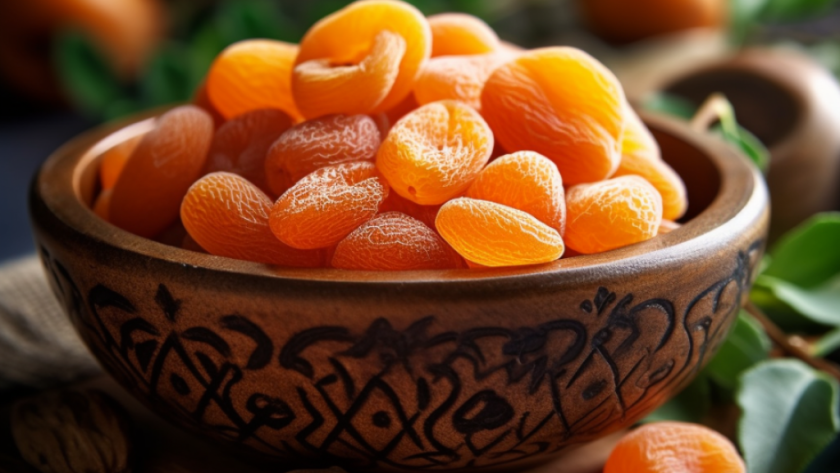The Prunus Genus includes the apricot, sometimes called stone fruit, which is enjoyed globally. Grown in temperature climates, apricot trees need a cold winter and spring and early summer temperatures that are on the warm side. Growing the apricot tree in areas with a subtropical environment is impossible. Apricots, like mangoes, plums, cherries, and peaches, are drupes or fruits with a single seed. Their fleshy outer section covers a hard stone containing a seed. The fruit ranges in color from orange to orange-red, with some types having greenish-white to cream-write to cream-white hues. In addition to being high in vitamins, minerals, and fiber, apricots are also high in carbs. In Chinese medicine, apricot kernels are also used to treat asthma, constipation, and cough.
Apricot’s Nutritional Value:
Apricots, also known as Khubani, are a nutritional powerhouse. They contain proteins (8%), carbohydrates (above 60%), crude fat (2%), vitamins A, C, K, and B complex, total minerals (4%), crude fiber (11.50%), and a reasonable amount of organic acids (malic and citric acid). This rich nutrient profile makes apricots a valuable addition to a healthy diet. They also contain a variety of antioxidants, which can help protect the body from oxidative stress.Apricot Properties
| Nutrient | Value |
| Water | 86.4 g |
| Energy | 48 Kcal |
| Protein | 1.4 g |
| Carbohydrate | 11.1 g |
| Sugars | 9.24 g |
| Calcium | 13 mg |
| Fibre | 2 g |
| Magnesium | 10 mg |
| Potassium | 259 mg |
| Zinc | 0.2 mg |
| Phosphorus | 23 mg |
| Copper | 0.078 mg |
| Manganese | 0.077 mg |
| Vitamin C | 10 mg |
| Riboflavin | 0.04 mg |
| Thiamin | 0.03 mg |
| Vitamin B-6 | 0.054 mg |
| Vitamin B-5 (pantothenic acid) | 0.24 mg |
| Vitamin B-3 (niacin) | 0.6 mg |
| Vitamin E | 0.89 mg |
| Vitamin A | 96 µg |
| Vitamin K | 3.3 µg |
| Sodium | 1 mg |
The ripening process builds up vitamin C and phenolic compounds, which gives ripened apricots a stronger antioxidant function.
- It could function as an antiparasitic.
- It could have anti-aging properties.
- It could have antitumor properties.
- It could function as an antioxidant or have hepatoprotective (liver-protecting) properties.
- It could possess renoprotective (kidney-preserving) properties.
- It could have a cholesterol-lowering (antiatherosclerating) property.
- It could be a cardioprotective (heart-protecting) or anti-aging (reducing chest discomfort) substance.
- It might have sedative effects.
- It may have antibacterial properties.
- It could have cough-suppressant (antitussive) properties.
- It could be able to reduce inflammation.
- It could be an agent that blocks painful sensations or an antinociceptive.
- It may be antimutagenic, meaning it might mitigate the effects of mutagens.
Potential Applications: Rich in nutrients, apricots include zinc, which is thought to improve cognitive function. They may help children improve their mental acuity and make a fantastic snack.
The following are possible applications of apricots for human health.
Apricots: A Potential Ally in the Fight Against Cancer
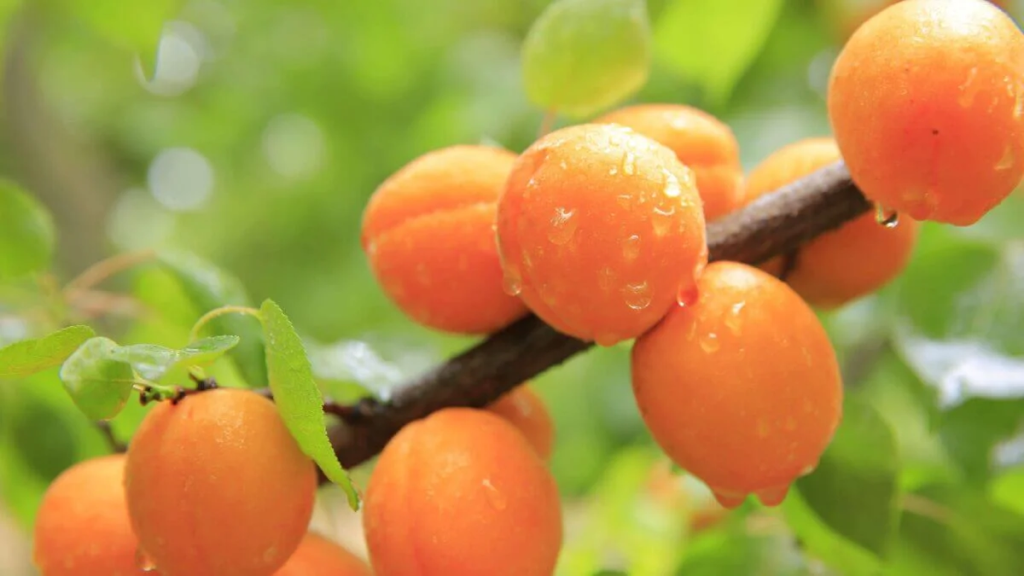
Are you aware that frozen apricots have more nutritional value than fresh apricots? The nutritious value of apricots is enhanced by freezing and preserving. Approximately three months after storage, there is an increase in their antioxidant levels.
Currently, behind cardiovascular illnesses, cancer is the second most frequent cause of death in the United States and the most prevalent degenerative ailment. There have been reports of apricots’ possible anti-cancer properties. In lab tests, a substance extracted from the Japanese apricot variety MK615 showed possible antitumor action against human pancreatic, liver, and colon cancer cells. Additional study is needed to support such claims about apricots’ plans to prevent cancer. Moreover, cancer is a dangerous illness that has to be detected and treated by a medical professional.
Apricots May be Used as an Antioxidant.
The condition known as oxidative stress arises from an imbalance between the body’s incapacity to detoxify these reactive chemicals and the generation and accumulation of reactive oxygen species in cells and tissues. Reactive oxygen species and free radicals are created during oxidative stress, and they may harm macromolecules, including proteins, lipids, and nucleic acids, as well as injure tissue. Chronic illnesses, including cancer, ulcers, diabetes, heart-related disorders, and inflammations, may result from these processes. Because of its complex phytochemical makeup, apricots may have antioxidant qualities. However, more investigation is needed to validate these effects.
Apricot Oil’s Possible Benefits for the Heart:
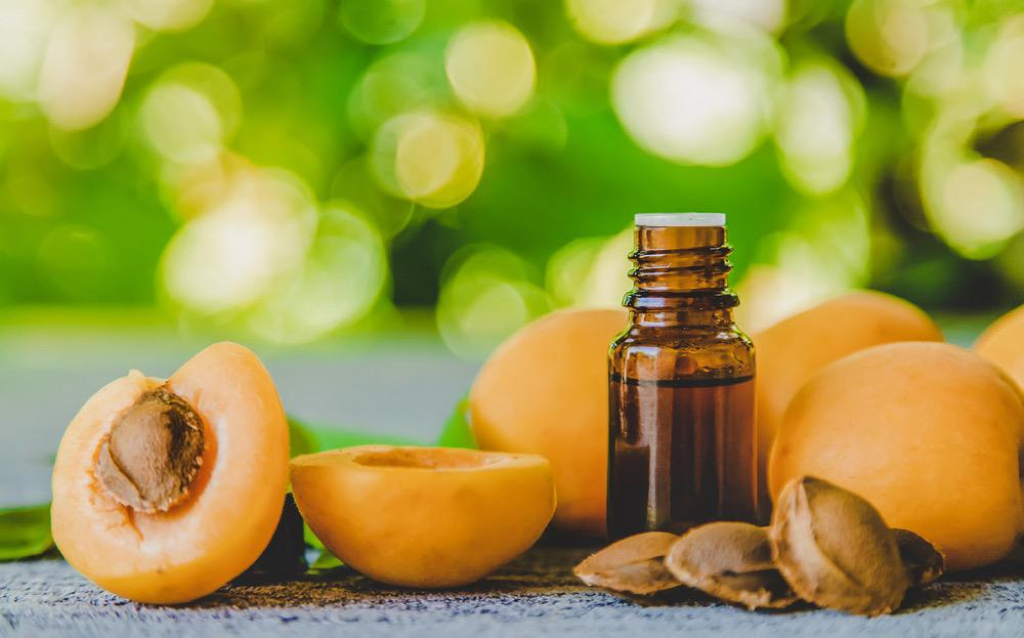
One of the leading causes of death in the globe is heart disease. Atherosclerosis, or the buildup of lipids, cholesterol, and other compounds in the arterial walls, excessive cholesterol, and other illnesses are risk factors for heart problems. Lycopene, chlorogenic acid, and β-carotene are phenolic chemicals found in apricots that may aid in the oxidation of low-density lipoprotein (LDL) and enhance the body’s antioxidative capacity. Moreover, apricots are a great source of fiber. It is well-recognized that soluble dietary fiber effectively lowers LDL cholesterol or bad cholesterol. Additional research is needed to demonstrate apricot’s potential value in preventing heart disease. Furthermore, a professional diagnosis and treatment are necessary for critical disorders such as heart-related issues. Please see a doctor as a result.
Apricots May be Used to Treat Liver:
Hepatic steatosis, another name for fatty liver disease, is the fat buildup in the liver. Hepatic steatosis may also result in severe fibrosis, cirrhosis (where good liver tissue is replaced by scar tissue, causing irreversible liver damage), and steatohepatitis (inflammation of the liver with fat buildup). Animal studies have shown that apricots may have an impact on hepatic steatosis. However, more investigation is needed to validate these effects. Please be aware that liver illnesses are dangerous and must be recognized and treated by a medical professional.
Apricots May be Used to Treat Infections
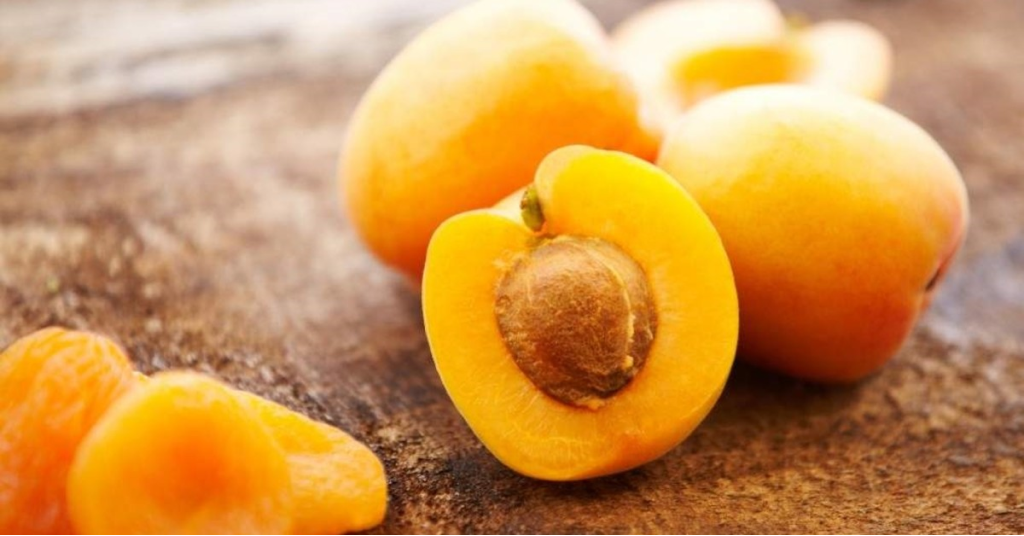
The Japanese apricot variety may be beneficial in preventing H. pylori from colonizing the digestive tract, which may help prevent gastritis. Gram-positive bacteria may be very susceptible to the antibacterial effects of apricot etanolic extract. Additionally, it could have antibacterial properties against microorganisms like Bacillus subtilis and Staphylococcus aureus.
Although some research suggests that apricot may be helpful in treating various ailments, further research is required to determine the full scope of apricot’s health benefits.
How Is Apricot Used?
You may eat apricots as
- Fresh fruits
- Fruits that are dried
- Blocks
- Drinks
- Canned or processed apricots
Apricot kernels may be eaten raw as an appetizer or used to make baked goods or medications.
Ayurvedic doctors often use the kernel oil from apricots to make various medications and cosmetics. Apricot oil may be beneficial for skin, hair, and overall health.
Apricots: A Natural Remedy with Cautionary Notes
Repercussions of Apricot:

Consuming apricot fruit in moderation has no adverse effects on health. However, consuming too many raw apricot kernels might be dangerous. A chemical found in apricot kernels is known as amygdalin. Once ingested, this chemical turns into cyanide. Cyanide poisoning may result from Neonaemia, cephalalgia, thirst, sluggishness, anxiety, fever, arthralgia, and hypotension. In extreme circumstances, it may be lethal. For these reasons, please see a physician before using it for any intended purposes.
Risks and Precautions
While apricot kernels offer several potential health benefits, they also come with risks, primarily due to the presence of amygdalin. When consumed, amygdalin can convert to cyanide, which is toxic and can lead to serious health issues, including:
Cyanide Poisoning
Symptoms of cyanide poisoning include headache, dizziness, confusion, and, in severe cases, respiratory failure or death. The European Food Safety Authority recommends limiting the intake of apricot kernels to avoid exceeding safe levels of cyanide.
Pregnancy and Breastfeeding:
Pregnant and breastfeeding women should avoid consuming apricot kernels due to the potential risks associated with cyanide exposure.
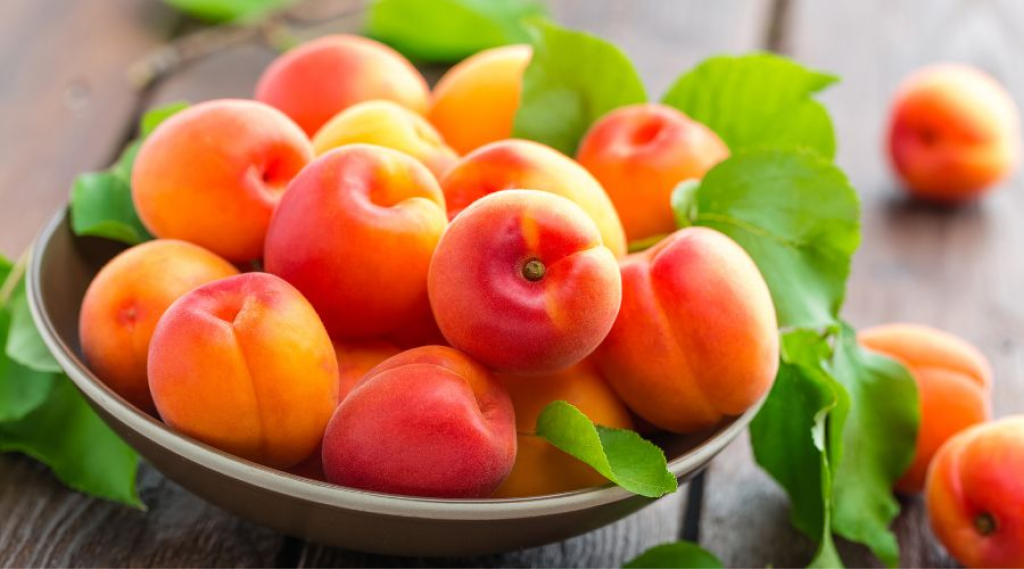
How to Eat Apricot Kernels Safely
It’s essential to include apricot kernels in your diet carefully if you decide to do so. Here are some rules to follow:
The Key Is Moderation
Just a few kernels should be consumed each day. The suggested safe quantity for adults is around three tiny kernels, and for youngsters, half a kernel.
Roasting
By lowering the amygdalin concentration, roasting apricot kernels makes them safer.
Speak with a Medical Professional
Speak with a healthcare provider before incorporating apricot kernels into your diet, mainly if you use medication or have underlying medical concerns.
Conclusion
Apricots and their kernels have many culinary applications and certain health advantages. They are flexible fruits that may improve the taste and nutritional value of a variety of recipes, whether they are consumed fresh or dried and used in snacks and cosmetic products. However, care should be taken while eating apricot kernels because of the potential for cyanide poisoning.
Including apricots in your diet may improve your general health, but you need to know about the safe use of their kernels. When considering using apricot kernels for health reasons, it is important to emphasize safety and speak with healthcare specialists as research on their possible hazards and advantages continues.
